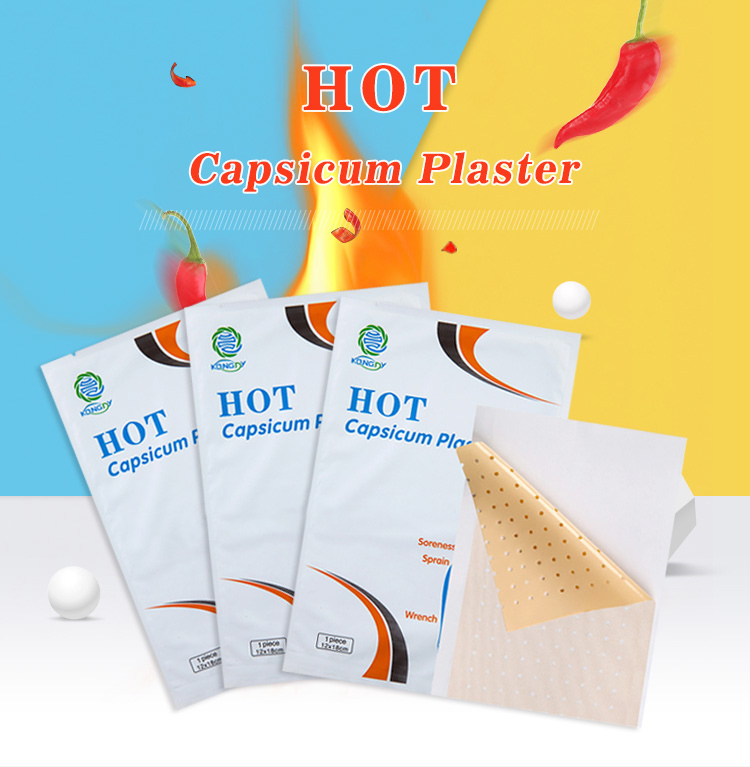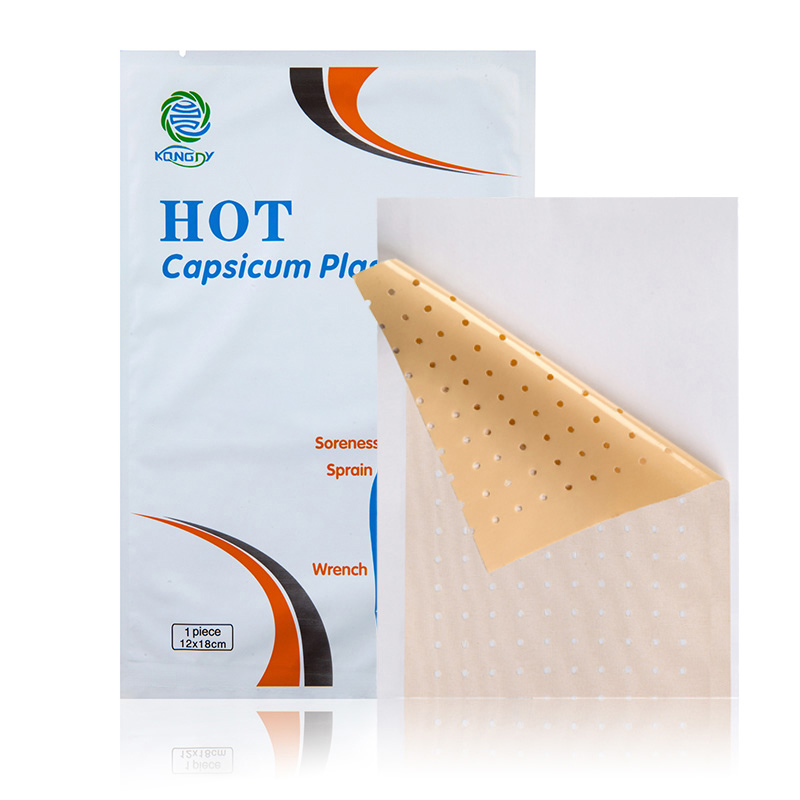What Certifications Should I Look for in a Capsicum Pain Relief Plaster OEM? A Complete Guide for Buyers and Brand Owners
In the health and wellness industry, certifications are more than just stamps of approval — they are crucial indicators of quality, safety, and trust. If you are planning to partner with a Capsicum Pain Relief Plaster OEM, understanding which certifications matter can help you avoid risks, ensure regulatory compliance, and strengthen your brand reputation.
This comprehensive guide will walk you through the most important certifications to look for in a Capsicum Pain Relief Plaster Manufacturer, whether you are developing a Custom Capsicum Pain Relief Plaster or planning to launch a Private Label Capsicum Pain Relief Plaster through a reliable Capsicum Pain Relief Plaster Supplier.

Table of Contents
Why Certifications Are Essential in OEM Manufacturing
Top Certifications to Look for in a Capsicum Pain Relief Plaster OEM
Certification Requirements by Market (USA, EU, Asia)
How Certifications Reflect on Product Quality and Safety
Verifying OEM Certification Claims
Certifications for Custom and Private Label Solutions
How the Right Certified Supplier Strengthens Your Brand
Conclusion
Related Questions and Short Answers
1. Why Certifications Are Essential in OEM Manufacturing
Certifications validate that a Capsicum Pain Relief Plaster Manufacturer adheres to global standards for:
Product safety and efficacy
Good manufacturing practices
Environmental responsibility
International trade compliance
For businesses sourcing from a Capsicum Pain Relief Plaster OEM, these certifications serve as a safeguard against poor quality, legal liability, and regulatory issues in your target markets.
2. Top Certifications to Look for in a Capsicum Pain Relief Plaster OEM
2.1 GMP (Good Manufacturing Practice)
Why it matters:
GMP certification ensures the manufacturing facility consistently produces products that meet quality standards. It covers hygiene, equipment, quality control, and documentation.
Applies to:
All Custom Capsicum Pain Relief Plaster and Private Label Capsicum Pain Relief Plaster manufacturers.
Issued by:
National drug authorities such as the US FDA, China NMPA, EU regulators.
2.2 ISO 13485 (Medical Device Quality Management System)
Why it matters:
ISO 13485 certifies that the manufacturer has a quality management system specific to medical devices, including transdermal plasters.
Applies to:
OEMs developing patches intended for medical use.
Issued by:
Accredited third-party certification bodies.
2.3 CE Marking (Conformité Européenne)
Why it matters:
Required for selling in the European Union. It shows the product meets safety, health, and environmental protection standards.
Applies to:
Capsicum plasters sold as medical devices or wellness products in Europe.
Who enforces it:
EU health regulators and notified bodies.
2.4 US FDA Registration and OTC Monograph Compliance
Why it matters:
For entry into the U.S. market, manufacturers must be registered with the FDA and follow the appropriate OTC (over-the-counter) drug monograph for topical analgesics.
Applies to:
Any Capsicum Pain Relief Plaster Supplier exporting to the United States.
What to check:
FDA facility registration
Product Drug Listing Number
Active ingredients listed in the FDA monograph (e.g., capsaicin)
2.5 ISO 9001 (Quality Management System)
Why it matters:
While not specific to medical devices, ISO 9001 is a foundation for reliable product quality and organizational excellence.
Recommended for:
All Capsicum Pain Relief Plaster Manufacturers and OEMs.
2.6 MSDS (Material Safety Data Sheet)
Why it matters:
Details the safety of raw materials, especially important for products using active ingredients like capsaicin.
Important for:
Brands focusing on Custom Capsicum Pain Relief Plaster formulations.
2.7 Halal and Vegan Certifications (if applicable)
Why it matters:
These certifications allow brands to target specific consumer segments (e.g., Muslim markets or vegan communities).
Useful for:
Private Label Capsicum Pain Relief Plaster companies expanding into niche wellness sectors.
3. Certification Requirements by Market
| Region | Key Certification(s) |
|---|---|
| USA | FDA Registration, OTC Monograph |
| EU | CE Marking, ISO 13485 |
| China | NMPA Filing, GMP |
| Middle East | Halal Certification |
| Global | ISO 9001, ISO 13485, GMP |
Ensure your Capsicum Pain Relief Plaster OEM or supplier can meet the certifications specific to your target sales region.
4. How Certifications Reflect on Product Quality and Safety
Certified manufacturers:
Have traceability protocols for all ingredients
Use validated processes and controlled environments
Perform batch testing and maintain documentation
Reduce risk of recalls, allergic reactions, and regulatory bans
By partnering with a certified Capsicum Pain Relief Plaster Supplier, your products are far more likely to meet consumer expectations and comply with legal standards.
5. Verifying OEM Certification Claims
Here’s how to verify a Capsicum Pain Relief Plaster Manufacturer truly holds the certifications they claim:
Request documentation: Always ask for valid, up-to-date certificates.
Check certification body accreditation: Ensure they are issued by a globally recognized body (e.g., SGS, TÜV SÜD, BSI).
Cross-reference with official databases: For example, verify FDA registration on FDA's database.
6. Certifications for Custom and Private Label Solutions
If you're offering Custom Capsicum Pain Relief Plaster or Private Label Capsicum Pain Relief Plaster, ensure your OEM can provide:
Ingredient-specific testing certifications (e.g., heavy metal tests, microbial content)
Stability studies and performance test results
Compatibility with retail compliance (barcoding, labeling regulations)
7. How the Right Certified Supplier Strengthens Your Brand
Choosing a certified Capsicum Pain Relief Plaster OEM or Supplier helps:
Build consumer trust through product safety and consistency
Streamline international expansion by avoiding regulatory barriers
Enhance marketing claims with verifiable quality assurance
Protect your business legally by reducing liability risks
For example, a Private Label Capsicum Pain Relief Plaster marketed in Europe will gain instant credibility if your supplier is CE and ISO 13485 certified.
8. Conclusion
Certifications are non-negotiable when choosing a Capsicum Pain Relief Plaster Manufacturer. They are the foundation for safety, trust, and long-term success. Whether you’re developing a Custom Capsicum Pain Relief Plaster or launching a Private Label line, only work with OEMs and suppliers who hold the relevant, verified certifications for your target market.
From GMP and ISO 13485 to FDA registration and CE marking, certifications not only protect your business but also help you deliver exceptional quality to your customers.
9. Related Questions and Short Answers
Q1: Is GMP certification required for all Capsicum Pain Relief Plaster OEMs?
A: Yes, GMP is essential to ensure proper hygiene, manufacturing control, and product quality.
Q2: What is the difference between ISO 9001 and ISO 13485?
A: ISO 9001 is a general quality management system, while ISO 13485 is specific to medical devices like capsicum plasters.
Q3: Do I need CE marking to sell capsicum plasters in Europe?
A: Yes, if they are marketed as medical devices or therapeutic aids.
Q4: What certifications are needed for the U.S. market?
A: FDA facility registration, drug listing compliance, and OTC monograph adherence.
Q5: How can I verify if my OEM is FDA registered?
A: You can check their FDA registration number on the official FDA database.
Q6: Can I market my Private Label Capsicum Pain Relief Plaster without certification?
A: No, certifications are required based on your product claims and market regulations.
Q7: Are MSDS and safety testing important?
A: Yes, especially for custom formulations using active ingredients like capsaicin.
Q8: Can I trust online OEM claims about certifications?
A: Always ask for documentation and verify with third-party sources.
Q9: Will certified OEMs cost more?
A: Possibly, but they reduce risk, enhance product credibility, and support long-term growth.






